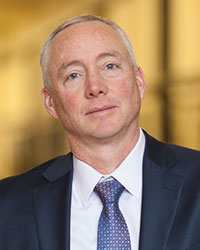Dennis Whyte
Professor, Nuclear Science & Engineering
Massachusetts Institute of Technology
Seminar Information
Engineering Building Unit 2 (EBU2)
Room 479
Seminar Recording Available: Please contact seminar coordinator, Jake Blair at (j1blair@ucsd.edu)

The advent of recent fusion confinement technologies has spurred large investments in private sector fusion. Historically, the development of new energy sources had large government investments, often spurred by national needs. With this motivation, an MIT design effort considered the use of the primary product of fusion, high-energy neutrons, in providing unique mitigation of the radioactive and toxic waste stream produced by the weapons program. The design exercise of a compact high magnetic field fusion device reveals multiple integrated engineering design challenges among them: ignited power control, power removal limits, rapid component replacement and fusion fuel management. In turn this exercise reveals challenges and R&D opportunities to making commercial fusion cost effective.
Dennis G. Whyte is the Hitachi America Professor of Engineering and Professor for Nuclear
Science & Engineering at the Massachusetts Institute of Technology. A recognized leader in
fusion research, especially in the magnetic confinement of plasmas, Whyte has paved an
innovative and faster path to producing fusion energy. He is a co-founder of the fusion energy
startup Commonwealth Fusion Systems (CFS) which is now the world’s largest private sector
fusion company with over 2 billion dollars raised. As Director of the MIT Plasma Science and
Fusion Center, he led the CFS-MIT collaboration that produced record high-temperature
superconductor (HTS) magnets and design for the SPARC tokamaks whose goal is commercial
relevant fusion production in the 2020s. Many of the ideas underpinning the high-field approach
— including the use of HTS for high-field, demountable magnets, liquid blankets, and ARC (a
fusion power plant concept) — have been conceived of or significantly advanced in his fusion
design courses. Whyte has over 380 peer-reviewed publications, is a fellow of the American
Physical Society, and has served on panels for the National Academies, the United States
government, and the Royal Society, and regularly appears in print and online media advocating
for fusion energy science and education. In 2018, Whyte received The Fusion Power Associates
(FPA) Board of Directors Leadership Award which is given annually to individuals who have
shown outstanding leadership qualities in accelerating the development of fusion, and in 2013
was awarded the Nuclear Fusion award for the most impactful research article in fusion. Whyte
earned a B.Eng from the University of Saskatchewan, and an MS and PhD from Université du
Québec. He previously served as Director of the Plasma Science and Fusion Center, and the
Department Head of Nuclear Science and Engineering, both at MIT. He is also the co-founder of
Rutherford Energy Ventures which seeks to accelerate fusion energy’s development by
innovative investment and financing tools.
